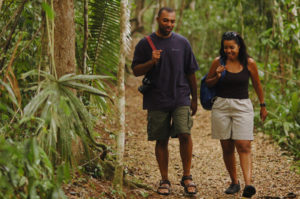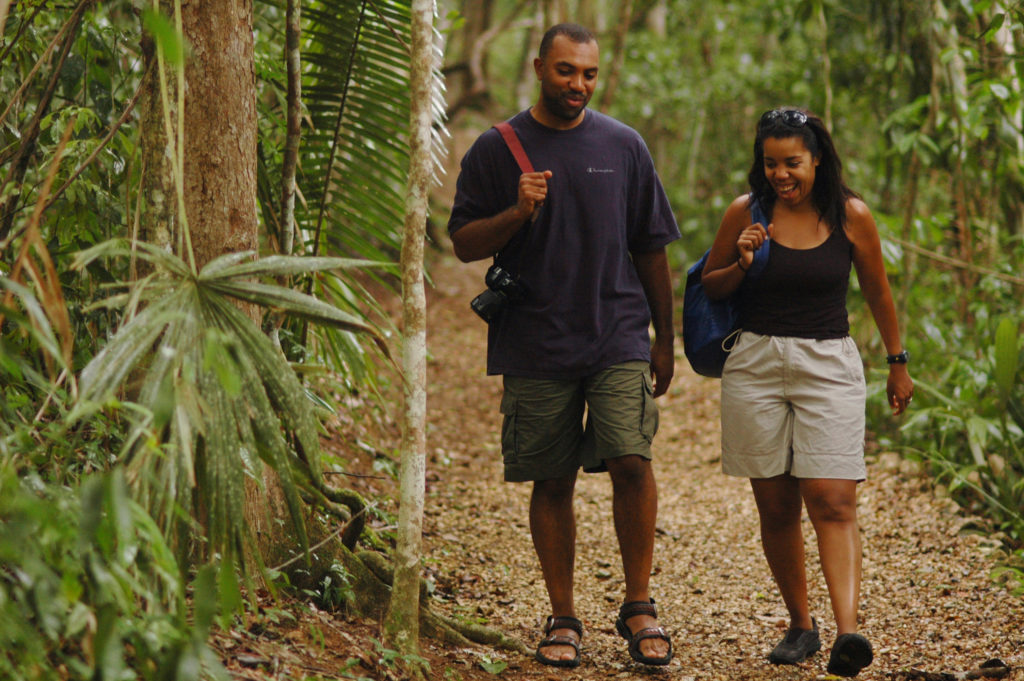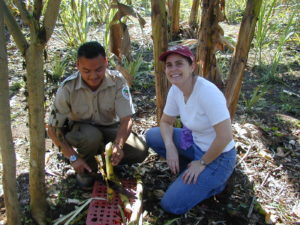In our fast-paced, material-heavy modern world, it can be difficult enough at home to live sustainably: Practicing environmental and ecological ethics on the road is sometimes that much tougher. There’s less under our control; we’re often beholden to local practice and custom about which we know little; and we may, like it or not, be part of a massive tourist horde, the impacts of which are substantial.
But one can still strive to be eco-friendly while traveling: What it takes is some forethought, some clear-eyed awareness, and the commitment to work a little harder to structure a trip. The beauty of remaining ecologically cognizant on a holiday is that, more often than not, it deepens the experience immeasurably.
(1) Plan ahead. Some people scheme out their travels well in advance, booking lodging and arranging their itinerary with a surgeon’s precision. Others prefer a looser approach: Show up at a destination, and find your way from there. Both approaches are fine as long as they jive with your personal expectations. But to heighten your chances at traveling more sustainably, commit some pre-trip planning regardless: not to overly schedule your trip, but simply to key into potential problem areas and opportunities before you leave.
For example, you may want to iron down the public transportation options available in and between your various destinations. On the whole, public transportation is a better route for reducing carbon emissions and other nefarious byproducts of the internal combustion engine. But it may not always be available in a remote area or along a complicated route. You can choose to omit such destinations in favor of those with better options, or simply ensure the bulk of your trip will emphasize more efficient transport so that you can “cheat” a little where it’s necessary.
(2) Research tour companies you might want to enlist for a leg of the trip, and choose those businesses that practice sound environmental and cultural practices. Read reviews of the given company, and don’t hesitate to call with hard questions: Find out about their general practices, whether they funnel money back into the local community, and what efforts they themselves make to be more sustainable and eco-friendly. You can also seek counsel in this regard from non-profit groups like the International Ecotourism Society.

(3) While traveling, take full advantage of more environmentally efficient modes of transport. As mentioned above, public transportation is often a fine choice. But as long as your physical condition allows it, consider walking or bicycling. Nothing grounds you deeply in a landscape as travel on your own two feet (the way humans have been hoofing it for hundreds of thousands of years). The adventurous pedestrian is free to blindly follow their nose to an enticing food cart, for example. Bicycling, too, can be an excellent, practical means of getting around town or countryside.
You can carry this approach as far as you want. For example, if feasible in the local geography, structure your holiday around an eco-friendly paddle by kayak or canoe.
(4) Focus your travel on fewer places—and then travel deeply within those destinations. It’s tempting to construct an itinerary packed with widely spaced highlights, so that you end up spending more time journeying and less time at any given locale. Practicing some restraint can pay big dividends: Instead of getting a cursory look at ten or 15 historic cities, maybe you settle for two and spend weeks getting to know them. You’ll also be lessening your footprint, as you won’t be hopping on as many planes, buses, or trains.
(5) Do your best to know where the food you’re eating is being sourced, which isn’t always easy on the road. In recent years, we’ve become more aware of the costs associated with the modern food industry, not least with long-distance transport. Where you can, inquire about locally derived food items: in restaurants, hotels, hostels, and markets. You’ll again be reducing your footprint while supporting the local economy and, more likely than not, eating better, more representative meals.
Eco-friendly traveling is, ultimately, all about awareness: of local cultures, economies, and ecology, and of yourself. Rather than being a burden or annoyance, this kind of travel can be a richer, more intimate one—a chance to see a place with fully open eyes.
Guest post contributed on behalf of Travelsure Multi-trip


